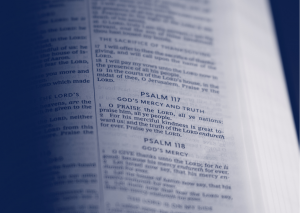When we think about Bipolar Disorder we tend to think of it as one type of mental illness when in fact there are a few variations. Bipolar disorders (manic-depressive disorders) are classified as a ‘chronic mental health condition’ characterised by periods of low mood such as depression as well as periods of mania, or extreme mood elevations. The warning signs are typically that the person’s behaviour is out of their control.
Symptoms
- Depressive Episodes – low mood, extreme sadness, feelings of hopelessness & loss of interest in usual activities.
- Mania – During manic episodes, the individual may show high levels of activity, talkativeness, agitation and elation, which impair normal functioning.
- Hypomania – A milder form of mania, and it does not impair normal functioning. Mixed episodes include depressive and manic episodes.
Diagnosis
Bipolar Disorder can be difficult to diagnose, as the onset can be misdiagnosed as depression, and the symptoms of depression are common in bipolar disorder – usually more so than hypomanic or manic symptoms. Episodes of ‘mixed mood’ are common which can get in the way of the detection of mania and hypomania. This is due to people reporting more about the depression side of it. For some people, it can take years before their illness is accurately diagnosed and treated.
DSM-5 Criteria for Manic Episodes
A distinct period of abnormally and persistently elevated, expansive or irritable mood and abnormally increased activity and energy, lasting at least one week and present most of the day nearly every day (or any duration if hospitalisation is necessary). During this period three or more of the following symptoms have persisted (four if the mood is only irritable) representing a change from usual behaviour and present to a significant degree:
- inflated self-esteem or grandiosity
- decreased need for sleep
- more talkative than usual or pressure to keep talking
- flight of ideas or subjective experience that thoughts are racing
- distractibility (reported or observed)
- increase in goal-directed activity (socially, at work or school, sexually) or psychomotor agitation
- excessive involvement in activities that have a high potential for painful consequences (e.g. spending, sexual indiscretion, foolish investments).
Mental health professionals should carefully assess previous episodes of mania or hypomania when working with depressed patients. Some patients with treatment-resistant unipolar depression may possibly have misdiagnosed bipolar disorder.
DSM-5 criteria for a hypomanic episode
A distinct period of abnormally and persistently elevated, expansive or irritable mood and abnormally increased activity and energy, lasting at least four consecutive days and present most of the day nearly every day. During this period three or more of the following symptoms have persisted (four if the mood is only irritable) representing a change from usual behaviour and present to a significant degree:
- inflated self-esteem or grandiosity
- decreased need for sleep
- more talkative than usual or pressure to keep talking
- flight of ideas or subjective experience that thoughts are racing
- distractibility (reported or observed)
- increase in goal-directed activity (socially, at work or school, sexually) or psychomotor agitation
- excessive involvement in activities that have a high potential for painful consequences (e.g. spending, sexual indiscretion, foolish investments).
The episode is associated with an unequivocal change in functioning that is uncharacteristic for the individual when not symptomatic. The disturbance in the mood and the change in functioning is observable by others. The episode is not severe enough to cause marked impairment in social or occupational functioning or to necessitate hospitalisation. If psychotic features are present the episode is, by definition, manic. The episode is not attributable to the physiological effect of a substance.
How long do the symptoms last?
The symptoms can last a week or more affecting thoughts, behaviours and relationships as it can be extremely difficult to live or deal with someone who has the disorder. Bipolar Disorder needs long term management with medication and therapy with a mental health professional.
There are several types of bipolar disorder
When we think about Bipolar Disorder we tend to think of it as one type of mental illness when in fact it varies in so many ways that the various forms of it had to be named separately.
- Bipolar I disorder—one or more manic or hypomanic episodes accompanied by major depressive episodes.
- Bipolar II disorder—one or more major depressive episodes that are accompanied by at least one hypomanic episode.
- Cyclothymic disorder—a mild form that involves at least two years of numerous episodes of hypomania.
- Substance/medication-induced bipolar and related disorder.
- Bipolar and related disorder due to another general medical condition.
Treatment
Treatment is often based on the severity or form of Bipolar Disorder the person has. Because it is a mood disorder, mood stabilisers are frequently used such as:
- lithium
- anti-convulsive medicine to treat mood swings
- anti-psychotics for controlling delusions and hallucinations and severe manic symptoms
- antidepressants – less desirable as they can trigger manic episodes
Regular Treatment and support by visiting a mental health condition is beneficial to the patient for regaining quality of life and learning coping mechanisms and strategies.
What causes bipolar disorder is not yet fully understood. There are those with bipolar disorder who are high functioning such as Nichole Howson – Running A Business Despite My Bipolar Disorder
Sandra Ciminelli
Cred. Dip. Couns. (Christian)
Resources
SANE Australia – Bipolar Disorder
Litchfield Vol. 7
Black Dog Institute – What is Bipolar disorder?
Where to Get Help
Talk to your doctor and see a mental health professional.
Visit CCAA to search for a Christian counsellor near you.
Visit ACA to search for a counsellor near you.




Have you thought about becoming a qualified counsellor? It’s a great opportunity to learn how you can extend God's love and grace to the hurting out in the community.
For those who would like to enrol in aifc’s accredited Christian counselling courses we have two intakes per year for courses commencing around the following months:
Enrolment Season - opens approximately 2 months prior to our courses commencing. Enrol online here during our enrolment season.
We also offer two modes of study:
A Master of Counselling course was introduced in 2018.